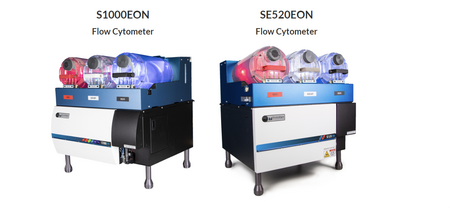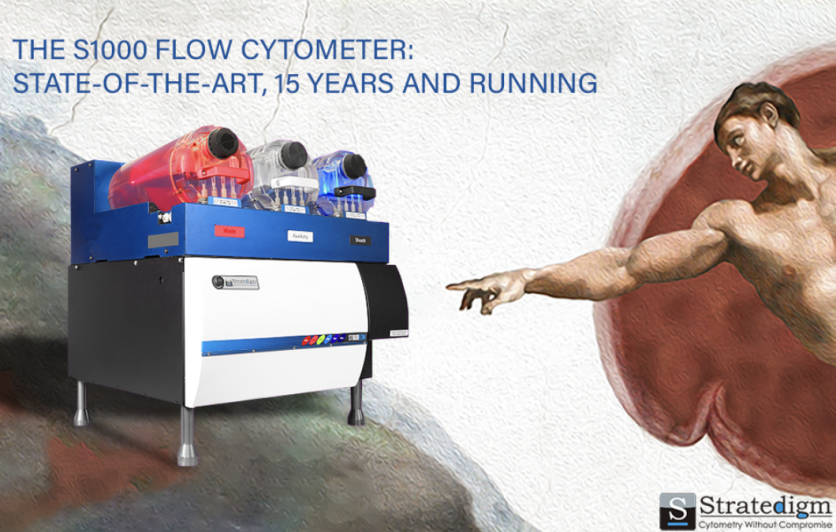
In the deep corridors of scientific research, where the significance of every penny spent and each microscope slide observed is scrutinized, something monumental is happening. Stratedigm, a San Jose-based flow cytometer manufacturer, is redefining the narrative of an entire industry. It's an industry largely relegated to the back pages of scientific journals, but its ripple effects are felt across fields as diverse as healthcare, agriculture, and environmental sciences.
After months of investigation into this critical yet often misunderstood area of research technology, what emerges is a portrait of a company on the verge of achieving something rare: a fiscally and ethically sustainable business model that provides value not just for its shareholders but also for its customers and-this is key-the wider world. This isn't just a case of corporate PR dressing. The evidence is in the meticulously detailed, six-pillar strategy framework Stratedigm has implemented, with each pillar designed to balance immediate needs against long-term objectives and global imperatives.
CEO Shervin Javadi, a far cry from the stereotypical tech executive, sat down to share this pivotal strategy. "We don't just manufacture products; we cultivate relationships," Shervin said, laying out the ethos behind the innovation. "The products we offer have to be future-proof, to honor our commitment to customers and also to safeguard environmental interests."
Stratedigm's Six Pillars: A Deep Dive
At first glance, Stratedigm's methodology, encapsulated by its "Six S's" strategy-size, scalability, sensitivity and resolution, software, security, and sustainability-may appear to be mere corporate nomenclature. Yet, when scrutinized, each of these pillars reveals an agenda-setting vision.
Size: Space is a premium in labs worldwide. Stratedigm recognized this limitation nearly two decades ago when they developed their innovative S1000 benchtop flow cytometer, designed to maximize lab space without compromising on performance. "We knew even then that laboratories would struggle with space, and our S1000 benchtop flow cytometer was engineered to address that future constraint," Shervin said.
Scalability: The concept here is more revolutionary than it seems. The ability to upgrade existing instruments without purchasing new ones stands to save labs hundreds of thousands of dollars in capital costs. "We look at it this way: our machines aren't static objects but dynamic, adaptable instruments that evolve with our customers' needs," Shervin explained.
Sensitivity and Resolution: These aren't just technical terms but critical attributes that determine the scope and impact of scientific research. According to Shervin, the S1000 cytometer is designed to meet the most demanding applications head-on, thanks to a series of U.S. patents. "We're talking about life-altering, groundbreaking research that our technology empowers," he emphasized.
Software: An often-underestimated challenge, balancing technological prowess with user-friendliness is at the core of Stratedigm's software development. "We need a symbiotic relationship between the software and hardware, which makes it seamless for the users. And it's a two-way street-we learn from our user community, assimilate their feedback, and strive for constant enhancement," Shervin told me.
Security: We're not talking about firewalls or data breaches, but the security of investment. Stratedigm offers an industry-first, standard two-year warranty on its cytometers. "Years of data told us that our machines were reliable, and we converted that reliability into assurance for our customers," Shervin said.
Sustainability: It's perhaps the most overused yet least understood term in corporate lingo. For Stratedigm, it's woven into their business fabric. "If you're not thinking about the long-term impact of your business on the environment, then you're missing the forest for the trees," Shervin stated.

Flowraissance: The Program to Watch
In a move that promises to further unsettle industry norms, Stratedigm is preparing to launch a revolutionary program named Flowraissance. While details are pending, its central premise aligns with the company's long-term vision, extending 'success-sharing' initiatives with existing customers in a manner that could radically shift business-customer relationships in this sector. "Let's just say it's going to be a game-changer," Shervin hinted, with an enthusiasm that suggested we keep our eyes peeled for the Q3 launch.
Shervin Javadi's language isn't that of your average tech CEO. Words like "honor," "commitment," and "safeguard" pepper his lexicon. "We're about creating a different sort of business ethos, one that takes into account not just profits but also people and the planet," he said. "Our anti-obsolescence program is a testament to this new model. We're eschewing the industrial-age mindset of ceaseless consumption and planned obsolescence in favor of something that could be both environmentally and economically sustainable."
Given the upcoming release of its next-gen S1000 cytometer, Stratedigm seems poised to not only push the technological envelope but also to challenge entrenched business models within the scientific research industry. "We can't wait to introduce our latest S1000 cytometer. It's not just a product, but an evolution-a continuation of our commitment to our clients and the world," Shervin said, brimming with anticipatory excitement.
In a world where corporate visions often crumble under the weight of immediate profit margins, Stratedigm stands apart. They are not just selling flow cytometers; they are promoting a philosophy, an ethos, a roadmap that defies convention to meld profitability with sustainability. And if they succeed in transforming an entire industry, imagine the ramifications that could have across the scientific world and beyond.
This is a story that demands we all pay close attention, for it could very well redefine how businesses operate in an increasingly resource-constrained world. The principles at play aren't just good science; they might just be good for society. In the meticulous designs and ethical foundations of Stratedigm's approach, we may find a template for a future that is as fiscally responsible as it is morally conscious.
ⓒ 2026 TECHTIMES.com All rights reserved. Do not reproduce without permission.




